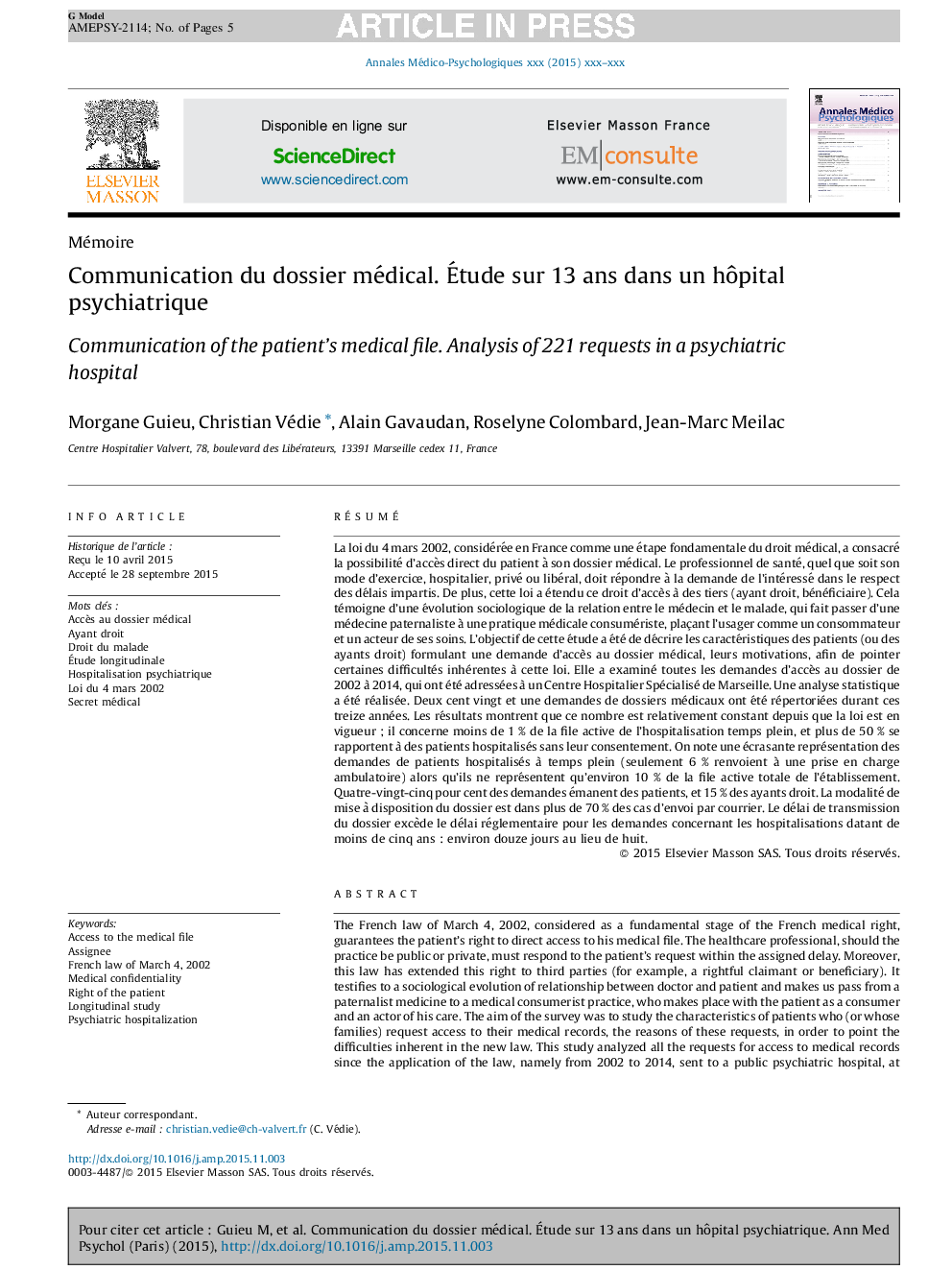| Article ID | Journal | Published Year | Pages | File Type |
|---|---|---|---|---|
| 6786000 | Annales Mdico-psychologiques, revue psychiatrique | 2017 | 5 Pages |
Abstract
The French law of March 4, 2002, considered as a fundamental stage of the French medical right, guarantees the patient's right to direct access to his medical file. The healthcare professional, should the practice be public or private, must respond to the patient's request within the assigned delay. Moreover, this law has extended this right to third parties (for example, a rightful claimant or beneficiary). It testifies to a sociological evolution of relationship between doctor and patient and makes us pass from a paternalist medicine to a medical consumerist practice, who makes place with the patient as a consumer and an actor of his care. The aim of the survey was to study the characteristics of patients who (or whose families) request access to their medical records, the reasons of these requests, in order to point the difficulties inherent in the new law. This study analyzed all the requests for access to medical records since the application of the law, namely from 2002Â to 2014, sent to a public psychiatric hospital, at Marseilles. Data were collected from archives, and a statistic analysis was performed. The study reviewed 221Â medical records requests during the thirteen years period. Results showed that the number of requests has been mostly the same every year since the law was effective. It concerned around 1Â % of the patient register and patients under compulsory hospitalization represented more than 50Â %. It was referred to a full-time hospitalization in most of the cases (only 6Â % linked with a medical follow-up) whereas full-time hospitalization just represented 10Â % of the total patient register. In 85Â % of the cases, patients requested their own medical file, in 15Â % the assignees did. The hospital mailed the records to patients or assignees by regular mail in more than 70Â % of cases. Delays in providing the records exceeded the statutory periods concerning hospitalizations dating less than 5Â years: about 12Â days while it was expected 8Â days.
Keywords
Related Topics
Health Sciences
Medicine and Dentistry
Psychiatry and Mental Health
Authors
Morgane Guieu, Christian Védie, Alain Gavaudan, Roselyne Colombard, Jean-Marc Meilac,
